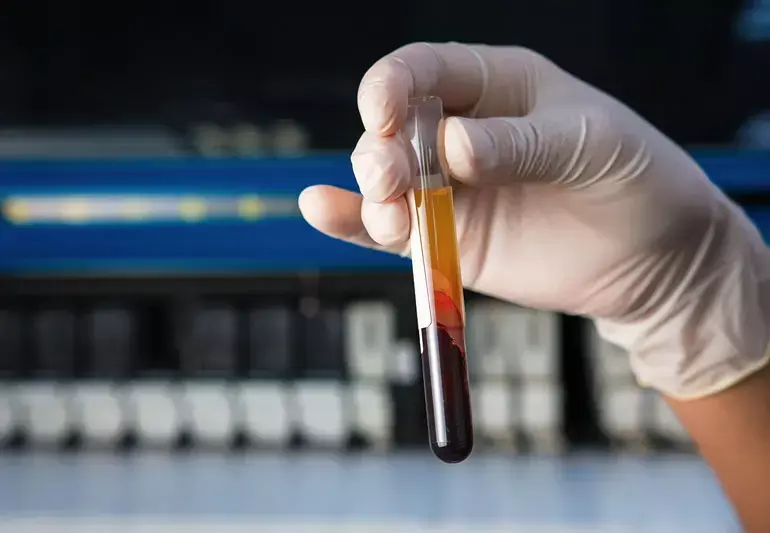- Home
- Medical news & Guidelines
- Anesthesiology
- Cardiology and CTVS
- Critical Care
- Dentistry
- Dermatology
- Diabetes and Endocrinology
- ENT
- Gastroenterology
- Medicine
- Nephrology
- Neurology
- Obstretics-Gynaecology
- Oncology
- Ophthalmology
- Orthopaedics
- Pediatrics-Neonatology
- Psychiatry
- Pulmonology
- Radiology
- Surgery
- Urology
- Laboratory Medicine
- Diet
- Nursing
- Paramedical
- Physiotherapy
- Health news
- Fact Check
- Bone Health Fact Check
- Brain Health Fact Check
- Cancer Related Fact Check
- Child Care Fact Check
- Dental and oral health fact check
- Diabetes and metabolic health fact check
- Diet and Nutrition Fact Check
- Eye and ENT Care Fact Check
- Fitness fact check
- Gut health fact check
- Heart health fact check
- Kidney health fact check
- Medical education fact check
- Men's health fact check
- Respiratory fact check
- Skin and hair care fact check
- Vaccine and Immunization fact check
- Women's health fact check
- AYUSH
- State News
- Andaman and Nicobar Islands
- Andhra Pradesh
- Arunachal Pradesh
- Assam
- Bihar
- Chandigarh
- Chattisgarh
- Dadra and Nagar Haveli
- Daman and Diu
- Delhi
- Goa
- Gujarat
- Haryana
- Himachal Pradesh
- Jammu & Kashmir
- Jharkhand
- Karnataka
- Kerala
- Ladakh
- Lakshadweep
- Madhya Pradesh
- Maharashtra
- Manipur
- Meghalaya
- Mizoram
- Nagaland
- Odisha
- Puducherry
- Punjab
- Rajasthan
- Sikkim
- Tamil Nadu
- Telangana
- Tripura
- Uttar Pradesh
- Uttrakhand
- West Bengal
- Medical Education
- Industry
Experimental siRNA Therapy Cuts Lipoprotein (A) by 98%: JAMA

Lipoprotein(a) (Lp[a]) has long been recognized as a genetically determined, independent risk factor for atherothrombotic cardiovascular disease. A recent study suggests that in patients with Lp(a) levels greater than 150 nmol/L and no known cardiovascular disease, SLN360, an short interfering RNA (siRNA) targeting apo(a) production, was well tolerated and showed dose-dependent lowering of plasma Lp(a) concentrations. The study findings were published in the JAMA on April 03, 2022.
Efforts have been underway for several years to develop RNA-targeted therapies that reduce hepatic production of apo(a) and thereby reduce plasma concentrations of Lp(a). In this study, Dr Steven E. Nissen and his team assessed the adverse events and tolerability of a siRNA designed to reduce hepatic production of apolipoprotein(a). They further evaluated the associated changes in plasma concentrations of Lp(a) at different doses.
It was a single ascending dose, first-in-human study of SLN360, an siRNA targeting apolipoprotein(a) synthesis conducted at 5 clinical research unit sites located in the US, United Kingdom, and Australia. The researchers included 32 patients with Lp(a) plasma concentrations of 150 nmol/L or greater at screening and no known clinically overt cardiovascular disease. The patients were randomized to receive placebo (n = 8) or single doses of SLN360 at 30 mg (n = 6), 100 mg (n = 6), 300 mg (n = 6), or 600 mg (n = 6), administered subcutaneously. The major outcome assessed was the evaluation of safety and tolerability. They also assessed the changes in plasma concentrations of Lp(a) to a maximum follow-up of 150 days.
Key findings of the study:
- Among 32 patients, one patient experienced 2 serious adverse event episodes which were judged to be unrelated to the study drug.
- The researchers noted that the baseline Lp (a) concentrations were: placebo, 238 nmol/L; 30-mg SLN360, 171nmol/L; 100-mg SLN360, 217 nmol/L; 300-mg SLN360, 285 nmol/L; and 600-mg SLN360, 231 nmol/L.
- They found that the maximal median reduction in Lp(a) was 20, 89, 185, 268, and 227 nmol/L for those treated with placebo and the 30, 100, 300, and 600 mg doses, respectively. They noted that the maximal median percentage reduction from baseline was 10%, 46%, 86%, 96%, and 98%, respectively.
- They highlighted that the lipoprotein(a) levels remained 70% to 80% lower than baseline at 150 days in response to the 2 highest doses of SLN360.
- They noted that the duration of Lp(a) lowering was dose-dependent, persisting for at least 150 days after administration.
The authors concluded, " In this phase 1 study of 32 participants with elevated Lp(a) levels and no known cardiovascular disease, the siRNA SLN360 was well tolerated, and a dose-dependent lowering of plasma Lp(a) concentrations was observed. The findings support further study to determine the safety and efficacy of this siRNA."
In an accompanying editorial, Dr Brian A. Ference wrote, "The results of these trials thus raise the clinically important question of how much Lp(a) must be reduced to produce a clinically measurable reduction in the risk of cardiovascular events. The answer to this question will in turn determine who is likely to benefit from lowering Lp(a). A series of cardiovascular outcome trials evaluating multiple different antisense oligonucleotide and siRNA therapies will provide the most robust estimate of the clinical benefit of lowering Lp(a) and help identify which individuals are likely to benefit most from lowering Lp(a)."
For further information:
Keywords:
siRNA therapy, SLN360,Lipoprotein(a), short interfering RNA, atherothrombotic cardiovascular disease, single ascending dose study, changes in Lp(a) levels, JAMA, CV events.
Medical Dialogues Bureau consists of a team of passionate medical/scientific writers, led by doctors and healthcare researchers. Our team efforts to bring you updated and timely news about the important happenings of the medical and healthcare sector. Our editorial team can be reached at editorial@medicaldialogues.in.
Dr Kamal Kant Kohli-MBBS, DTCD- a chest specialist with more than 30 years of practice and a flair for writing clinical articles, Dr Kamal Kant Kohli joined Medical Dialogues as a Chief Editor of Medical News. Besides writing articles, as an editor, he proofreads and verifies all the medical content published on Medical Dialogues including those coming from journals, studies,medical conferences,guidelines etc. Email: drkohli@medicaldialogues.in. Contact no. 011-43720751


